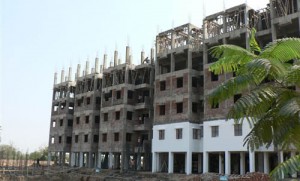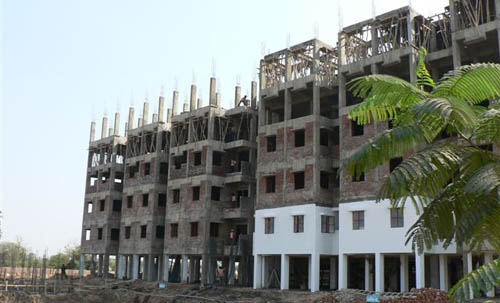 Need for a revolution that will see the poor get access to housing is more eminent than ever before, and that, in such a revolution lies a great business potential for the realty sector. This was one of the strong messages that emerged from the South India Real Estate Conference, 2012, inaugurated in Bangalore on Friday, July 3.
Need for a revolution that will see the poor get access to housing is more eminent than ever before, and that, in such a revolution lies a great business potential for the realty sector. This was one of the strong messages that emerged from the South India Real Estate Conference, 2012, inaugurated in Bangalore on Friday, July 3.
Currently, about five per cent of the country’s GDP is contributed by the housing sector, which is a significant force in fuelling the country’s economic growth. But industry leaders and experts from consulting and analyst firms find that there is something amiss in the sector.
Niranjan Hiranandani of the Federation of Indian Industries and Commerce (FICCI) said: “When Lal Bahadur Shastri said Jai Jawan Jai Kisan, ‘illiterate’ farmers of the country created a revolution. Why can’t we do it with all the expertise we have. Where is the housing sector failing?”
Terming the planning in Mumbai a shame, he said: “Even today, the country’s richest city has 50 per cent of its population living in slums with no access to real housing. Can we take pride in housing Asia’s largest slum, or should we seek a paradigm shift that will help change the situation, not only in Mumbai but also in other cities and the rural areas?”
Stating that the housing sector, including private real estate firms, can achieve great heights by focusing on the needs of the country, just like the telecom, automobile and other sectors have done, experts said that the sector needs a paradigm shift in the next five-seven years.
“Let us not worry about how or why things have not been done in the sector. Let us look at it as an opportunity, which, if explored, will provide us with great returns, even financially,” Niranjan said.
And the industry believes that there is ample scope for this achievement with several of the promoter-driven ‘start-ups’ already heading to become mid and large-size companies, with a plenty of potential to make the required contributions.
The idea of community no longer applies to just cities or towns or countries. It rather involves everywhere one needs to interact, the participants said. What is needed for the future, therefore, is not just communities but smart-connected communities.
Talking at a session on ‘Building smart in the 21st century — Moving from smart buildings to smart sustainable cities’, Nilesh Patel of Cisco Systems, Inc, said that there were rapid changes in the real estate space. In a few years, every buyer will consume technology where they live and work.
They will demand technology in their homes and workplaces in the next five years, Patel said in his presentation.
In short, the cities of the future will be run on networked information and the concept of intelligent townships will gain ground.
The next generation will want everything from transportation to sports and entertainment, retail stores to utility services, education to healthcare, governance to residence at places where they live.
The session was moderated by V Suresh, Principal Executive Officer, Hirco, a real estate investment company.





